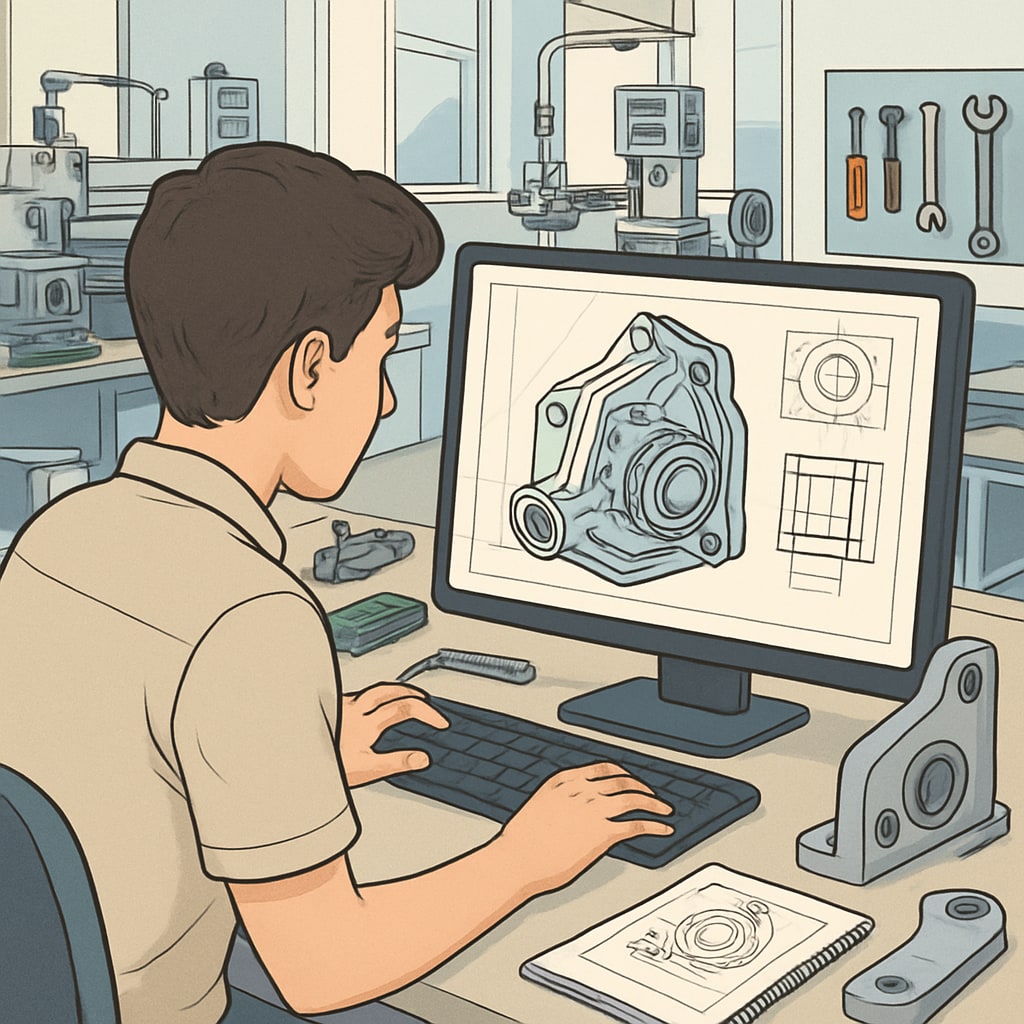Choosing the right academic pathway in design engineering can significantly shape an individual’s career trajectory. With various options available, especially at the graduate level, students often face the challenge of deciding between a Master of Engineering (MEng) and a Master of Science (MSc) degree. This article delves into the distinctions between these two advanced degrees, shedding light on their unique characteristics and how they influence employment prospects in the field of design engineering.
Understanding Design Engineering Degrees
Design engineering is a multidisciplinary field that combines creativity with technical expertise to create innovative solutions. At the undergraduate level, students typically pursue a Bachelor of Science (BSc) or Bachelor of Engineering (BEng) degree, which offers foundational knowledge in engineering principles, material science, and design methodologies. However, advancing to graduate studies—either through an MEng or MSc program—can open doors to specialized roles and higher earning potential.

MEng vs MSc: Which Pathway Fits Your Career Goals?
The decision between an MEng and MSc degree depends largely on your career aspirations and preferred learning style. Both degrees provide advanced knowledge, but they differ in focus, duration, and outcomes. Here’s a breakdown:
- Master of Engineering (MEng): This degree is typically practice-oriented, emphasizing hands-on problem-solving and real-world applications. It is often designed for students aiming for leadership roles in industry. In most cases, MEng programs feature internships or industry collaborations to prepare graduates for immediate employment.
- Master of Science (MSc): The MSc, on the other hand, leans toward research and theoretical exploration. Students who opt for this pathway often engage in in-depth studies, culminating in a thesis. An MSc is ideal for those considering a career in academia or R&D departments within engineering firms.
For example, an MEng graduate may work as a design engineer at a manufacturing company, overseeing the practical implementation of new products. Meanwhile, an MSc graduate with a focus on computational design might pursue a PhD or a research role at a tech firm.
Career Impacts of Graduate Design Engineering Degrees
Graduate degrees in design engineering can significantly enhance employability and earning potential. According to industry reports, individuals with advanced degrees are more likely to secure senior positions and command higher salaries compared to those with only a bachelor’s degree. Here’s how MEng and MSc graduates typically fare in the job market:
- MEng Graduates: These professionals are often recruited for roles such as project managers, systems engineers, and lead designers. Their practical training makes them well-suited for industries like automotive, aerospace, and construction.
- MSc Graduates: MSc holders frequently find opportunities in research-intensive roles, such as computational design specialists or material scientists. They are also strong candidates for academic positions or PhD programs.
Moreover, many employers value the specialization offered by graduate degrees, which can set candidates apart in competitive fields. For instance, an MSc in sustainable design engineering may be particularly attractive to firms focused on developing eco-friendly solutions.

Tips for Choosing the Right Degree
Deciding between an MEng and MSc involves careful consideration of your interests, career goals, and the skills you wish to develop. Here are some tips to guide your decision:
- Assess Your Career Objectives: If you aim to work in industry immediately after graduation, an MEng might be the better option. For those planning to pursue further research or academic roles, an MSc is often more suitable.
- Consider Program Duration: MEng programs are often shorter (1–2 years), while MSc degrees may take longer due to research requirements.
- Evaluate Course Content: Review the curriculum to ensure it aligns with your areas of interest, whether it’s product design, computational modeling, or sustainable engineering practices.
The Future of Design Engineering Careers
As technology advances, the demand for skilled design engineers continues to grow. Fields such as robotics, AI-driven design tools, and sustainable manufacturing are creating new opportunities for engineers with specialized knowledge. Graduate degrees in design engineering equip professionals to stay ahead in this rapidly evolving landscape.
In conclusion, whether you choose an MEng or MSc, the key is to align your educational investment with your long-term career goals. By understanding the unique advantages of each pathway, you can make an informed decision that sets you on the path to success in the dynamic field of design engineering.
Readability guidance: This article uses clear, concise language to explain complex concepts. The text is structured with headings and lists for easy navigation, ensuring accessibility for both students and parents exploring graduate education options.


